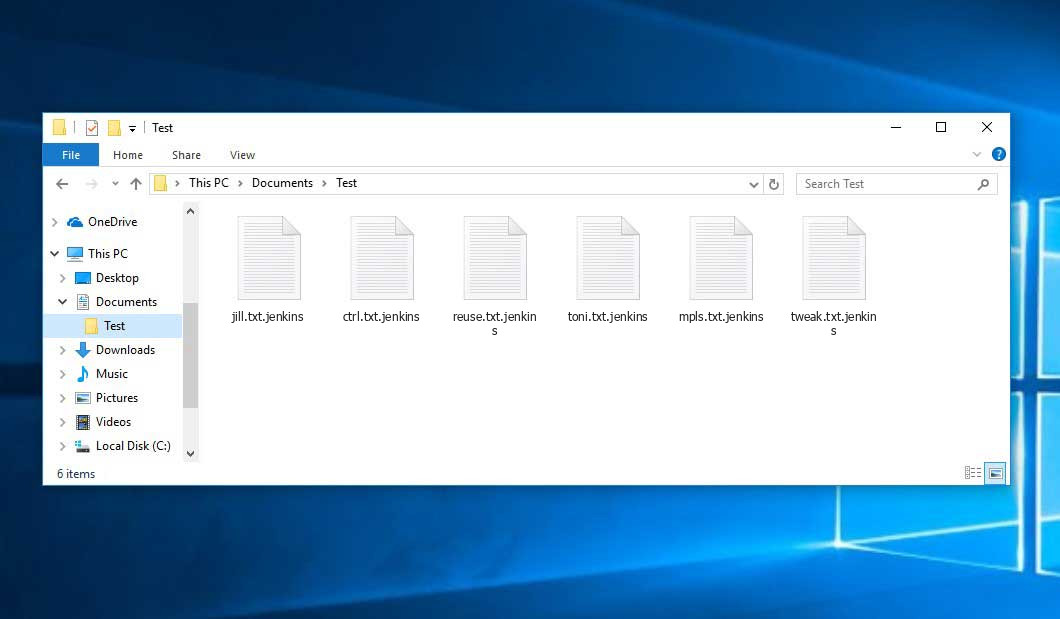Jenkins is a ransomware-type infections1. The ransomware encrypts important personal files (video, photos, documents). The infected files can be tracked by specific “.jenkins” extension. So, you can’t use them at all.
In this article I will try to help you remove Jenkins ransomware for free. Also I will assist you in decoding your crypted files.
What is “Jenkins”?
Jenkins can be correctly identify as a ransomware-type infection.
Ransomware is a specific kind of virus that crypted your documents and then forces you to pay for them. Note that JENKINS ransomware was first revealed and analyzed by virus analyst dnwls07192.Jenkins is similar to other ransomware like: Piny, Redl, Mkos. It crypted all popular file types. Hence, you cannot use the your documents or photos. Jenkins adds its particular “.jenkins” extension into all files. For instance, the file “video.avi”, will be changed into “video.avi.jenkins”. As soon as the encryption is accomplished, Jenkins creates a specific file “_readme.txt” and adds it into all folders that contain the modified files.
Here is a short details for the Jenkins infection:
| Ransomware family3 | Jenkins ransomware |
| Extension | .jenkins |
| Ransomware note | !READ_ME.txt |
| Contact | [email protected], [email protected] |
| Detection4 | Mal/MsilInj-F, Generik.YWTPTG, VirTool:MSIL/Injector |
| Symptoms | Most of your files (photos, videos, documents) have a .jenkins extension and you can’t open it |
| Fix Tool | See If Your System Has Been Affected by .jenkins file virus |
The cryptography algorithm used by Jenkins is AES-256. So, if your files got encrypted with a specific decryption key, which is totally distinct and there are no other copies. The sad reality is that it is impossible to restore the information without the unique key available.
In case if Jenkins worked in online mode, it is impossible for you to gain access to the AES-256 key. It is stored on a distant server owned by the frauds who distribute the Jenkins virus.
For receiving decryption key the payment should be $980. To obtain the payment details the victims are encouraged by the message to contact the frauds by email ([email protected]), or via Telegram.
Do not pay for Jenkins!
Please, try to use the available backups, or Decrypter tool
_readme.txt file also indicates that the computer owners must get in touch with the Jenkins representatives during 72 hours starting from the moment of files where crypted. On the condition of getting in touch within 72 hours users will be granted a 50% rebate, thus the ransom amount will be minimized down to $490). Yet, stay away from paying the ransom!
I strongly advise that you do not contact these crooks and do not pay. The one of the most real working solution to recover the lost data – just using the available backups, or use decrypter tool.
The peculiarity of all such viruses apply a similar set of actions for generating the unique decryption key to recover the ciphered data.
Thus, unless the ransomware is still under the stage of development or possesses with some hard-to-track flaws, manually recovering the ciphered data is a thing you can’t really perform. The only solution to prevent the loss of your valuable data is to regularly make backups of your crucial files.
Note that even if you do maintain such backups regularly, they ought to be put into a specific location without loitering, not being connected to your main workstation.
For instance, the backup may be kept on the USB flash drive or some alternative external hard drive storage. Optionally, you may refer to the help of online (cloud) information storage.
Needless to mention, when you maintain your backup data on your common device, it may be similarly ciphered as well as other data.
For this reason, locating the backup on your main device is surely not a wise idea.
How I was infected?
Jenkins has a various methods to built into your system. But it doesn’t really matter what way had place in your case.
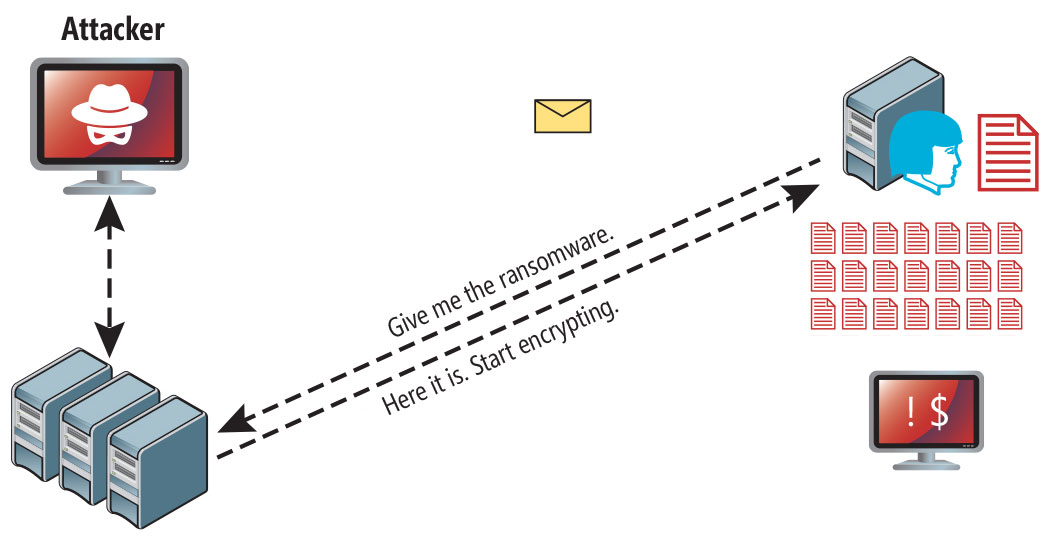
Jenkins ransomware attack following a successful phishing attempt.
- hidden installation along with other apps, especially the utilities that work as freeware or shareware;
- dubious link in spam emails leading to the Jenkins installer
- online free hosting resources;
- using illegal peer-to-peer (P2P) resources for downloading pirated software.
There were cases when the Jenkins virus was disguised as some legitimate tool, for example, in the messages demanding to initiate some unwanted software or browser updates. This is typically the way how some online frauds aim to force you into installing the Jenkins ransomware manually, by actually making you directly participate in this process.
Surely, the bogus update alert will not indicate that you are going to actually inject the Jenkins ransomware. This installation will be concealed under some alert mentioning that allegedly you should update Adobe Flash Player or some other dubious program whatsoever.
Of course, the cracked apps represent the damage too. Using P2P is both illegal and may result in the injection of serious malware, including the Jenkins ransomware.
To sum up, what can you do to avoid the injection of the Jenkins ransomware into your device? Even though there is no 100% guarantee to prevent your PC from getting damaged, there are certain tips I want to give you to prevent the Jenkins penetration. You must be cautious while installing free software today.
Make sure you always read what the installers offer in addition to the main free program. Stay away from opening dubious email attachments. Do not open files from the unknown addressees. Of course, your current security program must be always updated.
The malware does not speak openly about itself. It will not be mentioned in the list of your available programs. However, it will be masked under some malicious process running regularly in the background, starting from the moment when you launch your PC.
The message by the Jenkins ransomware states the following frustrating information:
SOMETHING WENT WRONG, PLEASE CONTACT YOUR SYSTEM ADMINISTRATOR! He can help you to understand whats happened. If he can't help you, contact us via email: [email protected] [email protected] HURRY UP! WE HAVE ANTIDOTE FOR YOUR FILES! DISCOUNT 20% FOR CLIENTS, WHO CONTACT US IN THE SAME DAY! You can attach 2 files (text or picture) to check our honest intentions, we will heal them and send back. File size not more than 1 Mb and it's should be text or picture, NOT DATABASE. Fill the following QUESTIONNAIRE and send it in body of your email. *********************************** QUESTIONNAIRE Company name: [PUT YOUR COMPANY NAME HERE] Country: [PUT YOUR COUNTRY HERE] City: [PUT YOUR CITY HERE] ID: *********************************** We can help you to avoid same issues in future, after heal we will provide advice how to fix security issues on your network.
The image below gives a clear vision of how the files with “.jenkins” extension look like:
How to remove Jenkins virus?
In addition to encode a victim’s files, the Jenkins infection has also started to install the Azorult Spyware on PC to steal account credentials, cryptocurrency wallets, desktop files, and more.
Reasons why I would recommend GridinSoft5
The is an excellent way to deal with recognizing and removing threats – using Gridinsoft Anti-Malware. This program will scan your PC, find and neutralize all suspicious processes6.
Download Removal Tool.
You can download GridinSoft Anti-Malware by clicking the button below:
Run the setup file.
When setup file has finished downloading, double-click on the install-antimalware-fix.exe file to install GridinSoft Anti-Malware on your system.
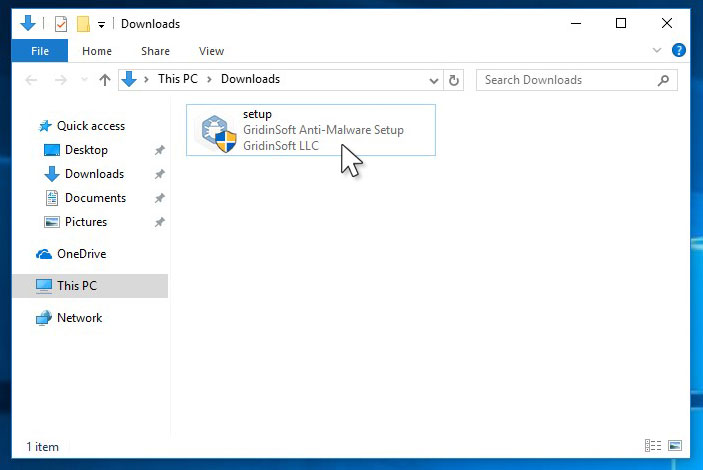
An User Account Control asking you about to allow GridinSoft Anti-Malware to make changes to your device. So, you should click “Yes” to continue with the installation.
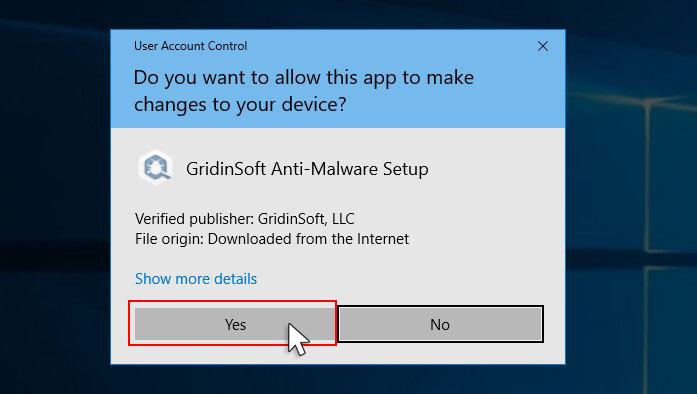
Press “Install” button.
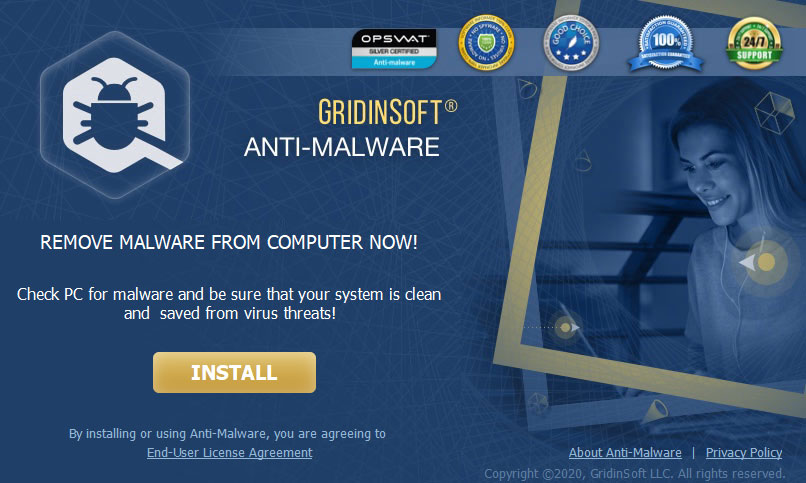
Once installed, Anti-Malware will automatically run.
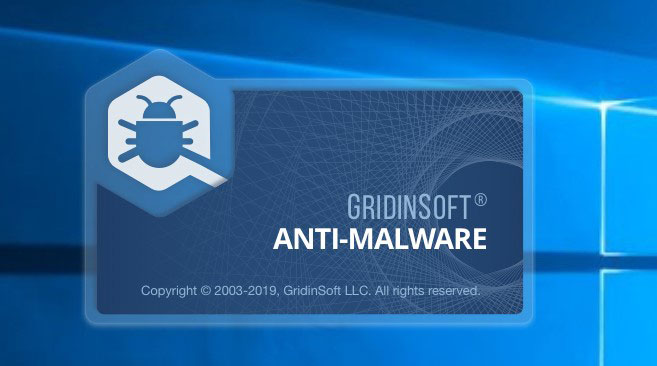
Wait for the Anti-Malware scan to complete.
GridinSoft Anti-Malware will automatically start scanning your PC for Jenkins infections and other malicious programs. This process can take a 20-30 minutes, so I suggest you periodically check on the status of the scan process.
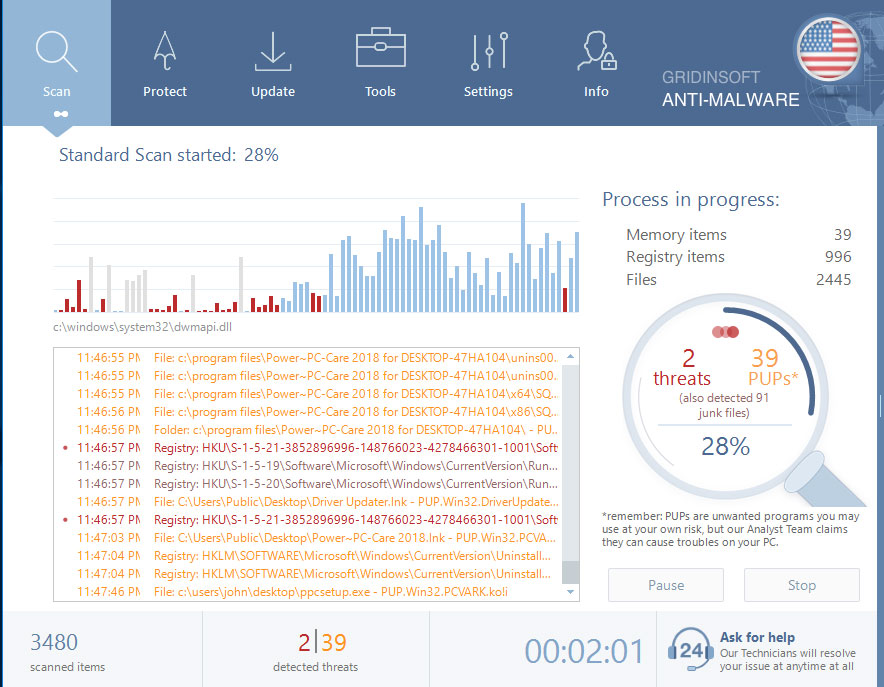
Click on “Clean Now”.
When the scan has finished, you will see the list of infections that GridinSoft Anti-Malware has detected. To remove them click on the “Clean Now” button in right corner.
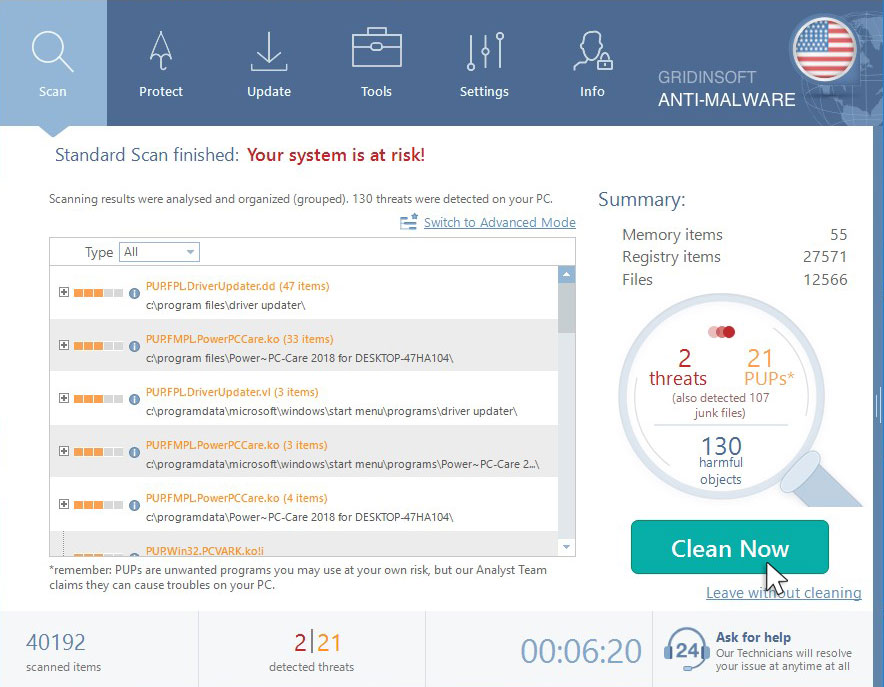
Frequently Asked Questions
How can I open “.jenkins” files?
jenkins files contain important information. How can I decrypt them urgently?
If not, then you can try to restore them through the system function – Restore Point.
All other methods will require patience.
You have advised using GridinSoft Anti-Malware to remove Jenkins. Does this mean that the program will delete my encrypted files?
You need GridinSoft Anti-Malware to remove active system infections. The virus that encrypted your files is most likely still active and periodically,
runs a test for the ability to encrypt even more files. In addition, these viruses install keyloggers and backdoors for further malicious actions
(example theft of passwords, credit cards) often.
If the guide doesn’t help you to remove Jenkins infection, please download the GridinSoft Anti-Malware that I recommended. Also, you can always ask me in the comments for getting help. Good luck!
User Review
( votes)References
- Ransomware-type infection: https://en.wikipedia.org/wiki/Ransomware
- Twitter: https://twitter.com/fbgwls245
- My files are encrypted by ransomware, what should I do now?
- Encyclopedia of threats.
- GridinSoft Anti-Malware Review from HowToFix site: https://howtofix.guide/gridinsoft-anti-malware/
- More information about GridinSoft products: https://gridinsoft.com/comparison


